All Formats & Editions
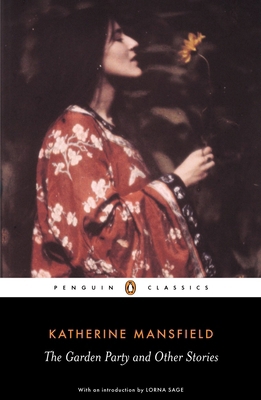
The Garden Party and Other Stories
Innovative, startlingly perceptive and aglow with colour, these fifteen stories were written towards the end of Katherine Mansfield's tragically short life. Many are set in the author's native New Zealand, others in England and the French Riviera. All are revelations of the unspoken,...

the-garden-party-and-other-stories
Innovative, startlingly perceptive and aglow with colour, these fifteen stories were written towards the end of Katherine Mansfield's tragically short life. Many are set in the author's native New Zealand, others in England and the French Riviera. All are revelations of the unspoken,...

The Garden Party and Other Stories
Innovative, startlingly perceptive and aglow with colour, these fifteen stories were written towards the end of Katherine Mansfield's tragically short life. Many are set in the author's native New Zealand, others in England and the French Riviera. All are revelations of the unspoken,...
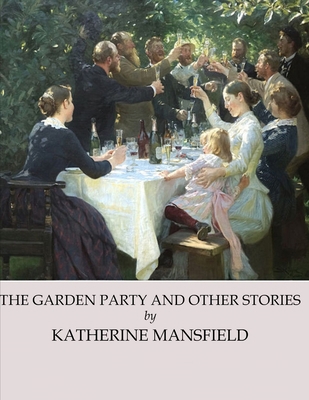
The Garden Party & Other Stories: (Annotated Ed...
The Garden Party and Other Stories by Katherine Mansfield was first published in 1922 by Constable and Co., a notable publishing house in London. The work was dedicated to her husband, John Middleton Murry. The collection of short stories was the last published work by Mansfield...
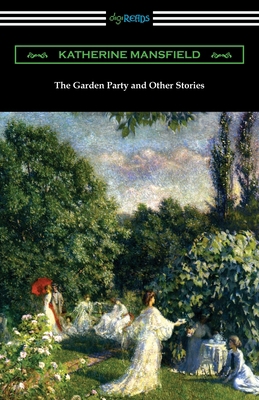
The Garden Party and Other Stories
Katherine Mansfield is often recognized as one of the true innovators of the modern short story. The New Zealand-born Englishwoman embraced a Bohemian lifestyle and became involved in a series of scandalous relationships, which greatly influenced some of her most significant...

The Garden Party
"The Garden Party" by Katherine Mansfield. A wonderful tale that has been loved by many for generations. Its luxurious setting is based on Mansfield's childhood home at Tinakori Road, Wellington.Any profits made from the sale of this book will go towards supporting the Freeriver...
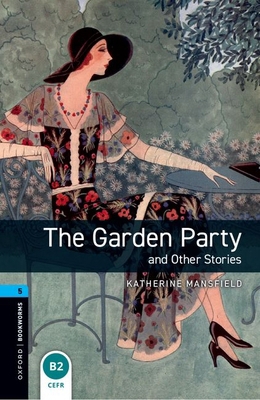
Oxford Bookworms Library: Stage 5: The Garden P...
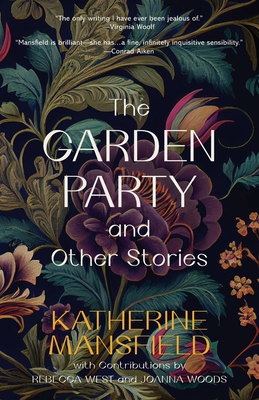
The Garden Party and Other Stories (Warbler Cla...
Published in 1922, The Garden Party and Other Stories is Katherine Mansfield's third and most acclaimed collection of short stories. In addition to the title piece, it includes fourteen other masterful stories, including "At the Bay" and "The Daughters of the Late Colonel." Set...

The Garden Party and Other Stories
A new edition of New Zealand author Katherine Mansfield 's 1922 short-story collection, The Garden Party and Other Stories . This collection contains the following fifteen stories, among Mansfield's most beloved and influential works: "At the Bay" "The Garden Party" "The Daughters...

The Garden Party: And Other Stories
Introduction by Colm T ib n In fifteen funny, colorful, poignant and mysterious stories, the irreverent modernist Katherine Mansfield, a friend and contemporary of D. H. Lawrence and Virginia Woolf, examines a range of themes integral to the human experience,...

Garden Party
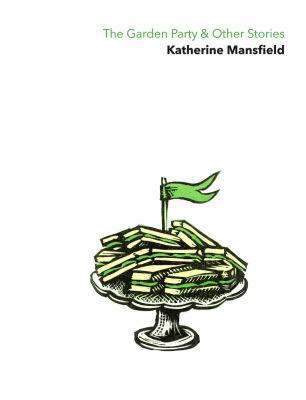
The Garden Party & Other Stories
In Katherine Mansfield's subtle and powerful story "The Garden Party", a wealthy family prepares to host the titular event. When they learn that their working-class neighbour has died, their young daughter Laura protests that the party should be called off; yet no one else agrees...
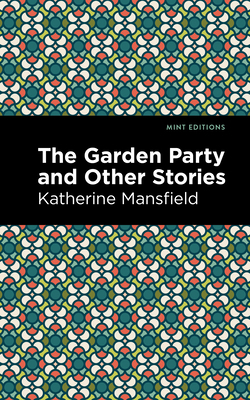
The Garden Party and Other Stories
Fifteen vivid stories set in Europe and Mansfield's native New Zealand populate this selection of tales inspired by the complex nature of the human condition. The author delivers an insightful look at modern behavior post-World War I. The Garden Party and...

The Garden Party and Other Stories
The Garden Party is a 1922 short story by Katherine Mansfield. It was first published in the Saturday Westminster Gazette on 4 February 1922, then in the Weekly Westminster Gazette on 18 February 1922. It later appeared in The Garden Party and Other Stories. Its luxurious setting...
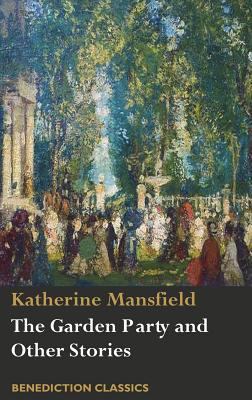
The Garden Party and Other Stories

The Garden Party and Other Stories (Everyman's ...
Introduction by Claire Tomalin
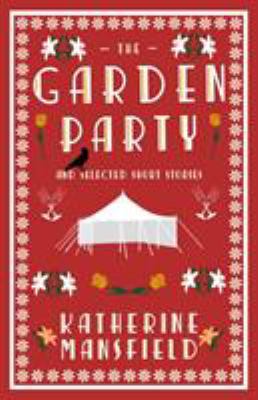
The Garden Party and Selected Short Stories
When her wealthy family prepares to host a lavish summer party, the young, hitherto sheltered Laura Sheridan suddenly feels a kinship with the staff and the helpers hired to set up the venue for the festivities. As she learns of the death of one of their working-class neighbours,...
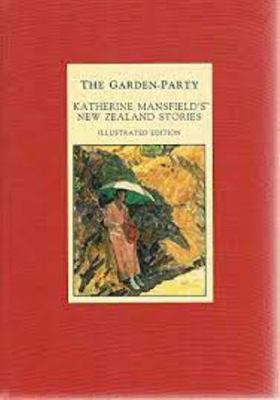
The Garden Party: Katherine Mansfield's New Zea...
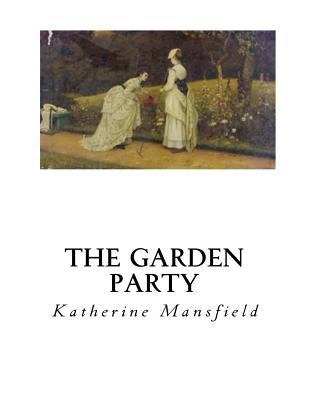
The Garden Party
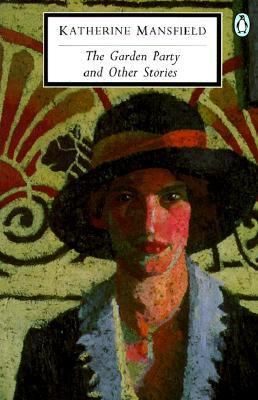
The Garden Party and Other Stories (Penguin Twe...
This was Katherine Mansfield's last collection of short stories to be published during her lifetime. The stories vary in length, yet all are sensitive revelations of human behaviour.
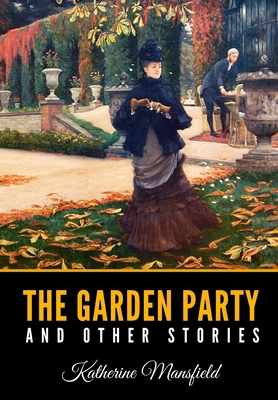
The Garden Party and Other Stories
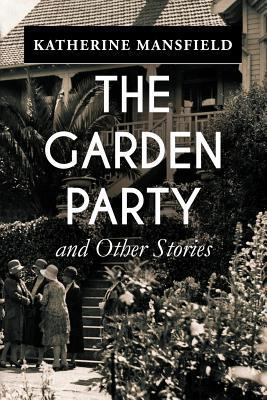
The Garden Party, and Other Stories
In deceptively simple language, Katherine Mansfield illuminates complicated relationships and profound, often troubling, ideas. Couples who marry for ambiguous reasons, lovers who persistently misunderstand one another, women who cling to unrealized dreams and unrecognized prejudices...
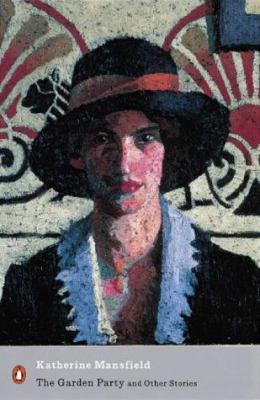
Modern Classics Garden Party And Other Stories

The Garden Party
The Garden Party and Other Stories by Katherine Mansfield was first published in 1922 by Constable and Co., a notable publishing house in London. The work was dedicated to her husband, John Middleton Murry. The collection of short stories was the last published work by Mansfield...
![The Garden Party, and other stories: Large Print [Large Print] 1724830694 Book Cover](https://i.thriftbooks.com/api/imagehandler/l/D174C10EF5269A7A4F37F6C6A12EC08861556480.jpeg)
The Garden Party, and other stories: Large Print [Large Print]
The Garden Party, and other stories: Large Print By Katherine Mansfield The Garden Party is a 1922 short story by Katherine Mansfield. It was first published in the Saturday Westminster Gazette on 4 February 1922, then in the Weekly Westminster Gazette on 18 February 1922. It...










